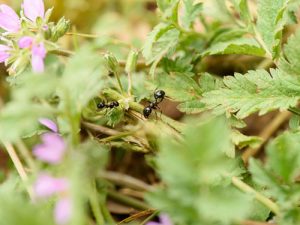
Ants can be a pesky problem to have in your garden. Not only can they damage your plants, but they can also pose a threat to your property, especially if they make their way into your Orlando home. Fortunately, there are several natural ant prevention methods you can follow to quickly get nuisance ants out of your garden without harming your plants.
Natural Methods for Ant Prevention
If you are struggling with ant control, here are six effective ant prevention tactics for you to try:
-
Borax and Sugar Solution
A 50/50 mix will create a poisonous bait that attracts ants. When the ants bring the toxic bait back to their nests, it can kill off the entire colony.
-
Diatomaceous Earth
A fine powder made from crushed rock, diatomaceous earth can cut through the exoskeleton of insects, including ants. Sprinkle it around the perimeter of your garden to create a barrier that will keep ants out.
-
Brewed Coffee Grounds
Ants are repelled by the smell of brewed coffee grounds, so spread them around your garden to keep ants at bay.
-
Baking Powder and Sugar
An alternative to the borax and sugar method that is just as effective, but safer for ant-infested households that have pets or small children.
-
Eliminate Aphids
Aphids provide a source of food for ants known as honeydew. Therefore, eliminating aphids from your garden may help prevent ants as it will remove a food source that the pests crave.
-
Vinegar
Ants are not fans of strong smells, like vinegar. Mix water and vinegar into a spray bottle and apply it where you see ants.
While these natural, DIY methods can be effective at preventing ants, they only offer temporary relief from the potential threats that ants can pose to you and your property. Ants can spread contamination and cause painful bites to your loved ones if they manage to infest your home. Instead of attempting your own ant control methods, save yourself the time and hassle by relying on the ant control experts at Critter Control® of Orlando to permanently take care of ants in your garden.
Effective Ant Control Services in Orlando, FL
The experienced ant control technicians at Critter Control® of Orlando will quickly and safely remove nuisance ants from your property and keep them from returning. Instead of using dangerous and damaging chemicals, our licensed and trained experts use only non-toxic, eco-friendly, and safe ant control methods that pose no risk to you, your loved ones, or your pets.
To schedule your inspection and receive a free ant control estimate, call Critter Control® of Orlando at 407-295-7194 today.




 ile certain plants, herbs, and flowers may look and smell pretty to humans, such vegetation can be odorous or even harmful to wild animals. If your garden is being ransacked by invasive pests, a variety of common plants can be useful in driving nuisance wildlife away from your residential home.
ile certain plants, herbs, and flowers may look and smell pretty to humans, such vegetation can be odorous or even harmful to wild animals. If your garden is being ransacked by invasive pests, a variety of common plants can be useful in driving nuisance wildlife away from your residential home.
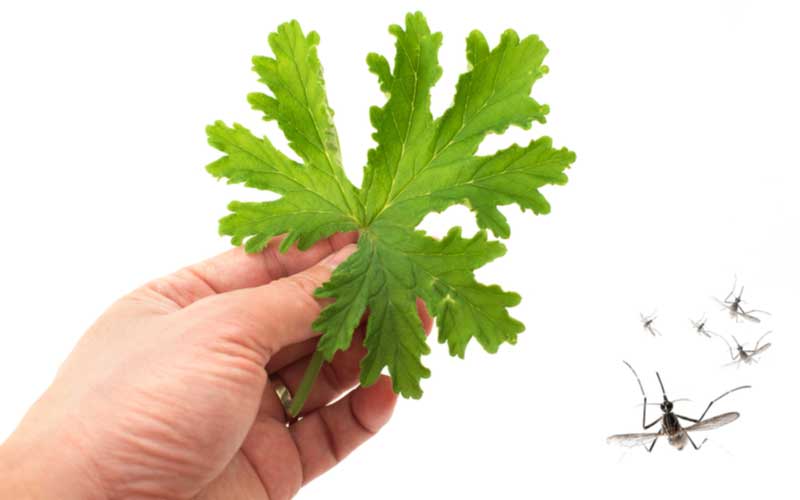
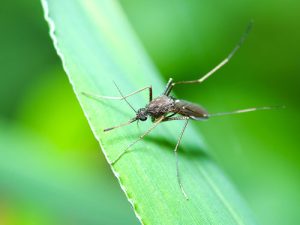 The following plants contain strong scents and essential oils that have been known to naturally repel mosquitoes and other bothersome insects from homes and businesses.
The following plants contain strong scents and essential oils that have been known to naturally repel mosquitoes and other bothersome insects from homes and businesses.
 t can cause severe respiratory distress and lead to other health conditions such as kidney damage and liver failure.
t can cause severe respiratory distress and lead to other health conditions such as kidney damage and liver failure.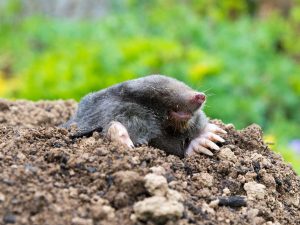 Invasive moles quickly become an expensive nuisance when they tunnel under your Central Florida home. In addition to littering your yard with hazardous and unsightly mole holes, burrowing pests can threaten your home’s structural integrity by weakening the ground beneath your property.
Invasive moles quickly become an expensive nuisance when they tunnel under your Central Florida home. In addition to littering your yard with hazardous and unsightly mole holes, burrowing pests can threaten your home’s structural integrity by weakening the ground beneath your property.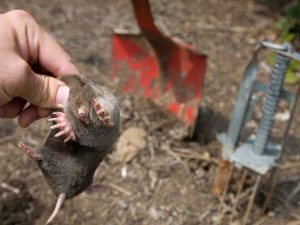 Moles can destroy your lawn or backyard in a short amount of time as they burrow underground, busting irrigation pipes, cracking foundations, and uprooting plants in the process. To permanently get rid of the burrowing rodents, you’ll want professionals with expertise and experience. Here’s how to choose a mole removal expert.
Moles can destroy your lawn or backyard in a short amount of time as they burrow underground, busting irrigation pipes, cracking foundations, and uprooting plants in the process. To permanently get rid of the burrowing rodents, you’ll want professionals with expertise and experience. Here’s how to choose a mole removal expert. Opossums will den anywhere they can find a spot that’s dry, sheltered, and safe which is why they are commonly found living inside attics, within crawl spaces, or underneath the sheds and decks of homes and businesses. Because their bodies have little fat, opossums don’t store food during the winter and instead forage for food year round. Therefore, the nocturnal marsupials can frequently be seen at night wandering Orlando neighborhoods in search of food.
Opossums will den anywhere they can find a spot that’s dry, sheltered, and safe which is why they are commonly found living inside attics, within crawl spaces, or underneath the sheds and decks of homes and businesses. Because their bodies have little fat, opossums don’t store food during the winter and instead forage for food year round. Therefore, the nocturnal marsupials can frequently be seen at night wandering Orlando neighborhoods in search of food.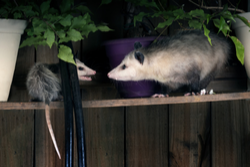

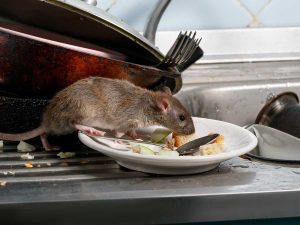 The presence of an unwelcome pest in your home can range from annoying to terrifying, and the sounds and smells that rats make are often disturbing. But exterminating the critters that caused them isn’t the only way to make them go away. In fact, there are several safe
The presence of an unwelcome pest in your home can range from annoying to terrifying, and the sounds and smells that rats make are often disturbing. But exterminating the critters that caused them isn’t the only way to make them go away. In fact, there are several safe 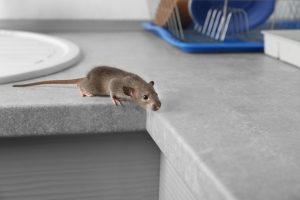
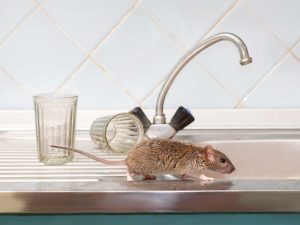 When homeowners discover a growing rat problem in their home, their heads likely swirl with questions as to when the infestation started, how the pests got inside, and what they could have done to prevent it. Instead of dwelling on what led to a rat infestation on your property, focus on the following
When homeowners discover a growing rat problem in their home, their heads likely swirl with questions as to when the infestation started, how the pests got inside, and what they could have done to prevent it. Instead of dwelling on what led to a rat infestation on your property, focus on the following 

